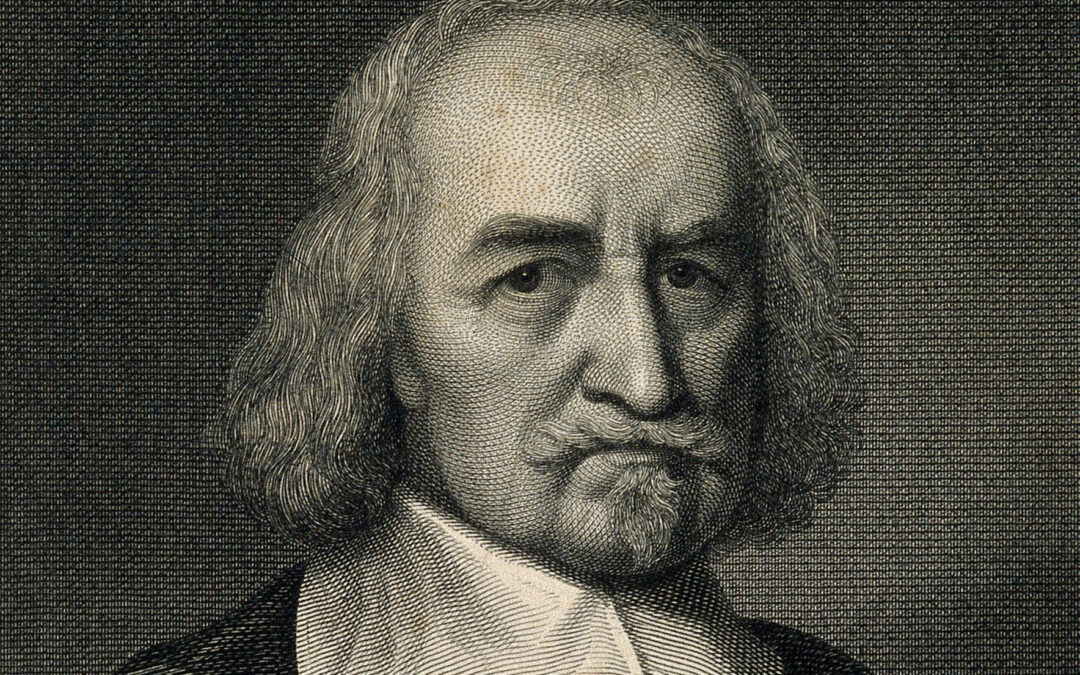Thomas Hobbes (1588-1679) was an English philosopher, best known for his political philosophy and social contract theory. He is often considered one of the founders of modern political philosophy and his ideas have had a significant influence on Western political thought.
Hobbes was born in Westport, England and was educated at Oxford University. His most famous work is Leviathan, published in 1651. In this book, Hobbes argues that humans are fundamentally self-interested and competitive, and that without a strong central authority to keep them in check, they will descend into a state of war with each other. He believed that the only way to avoid this state of chaos was for individuals to enter into a social contract with each other, giving up some of their individual rights in exchange for protection and security provided by a strong government.
Hobbes was also a proponent of the idea of the “state of nature”, which he used as a thought experiment to explore the nature of human existence without government. In this state, individuals are in a perpetual state of war with each other, each pursuing their own self-interest at the expense of others. He argued that the state of nature was a miserable and brutal existence, and that the social contract was necessary to escape it.
In addition to his political philosophy, Hobbes also made contributions to the fields of ethics, epistemology, and metaphysics. He was a materialist, believing that everything in the universe could be explained in terms of matter and motion. He also believed that the only way to know anything for certain was through sensory experience.
Despite his contributions to philosophy, Hobbes was a controversial figure in his own time and his ideas continue to be debated and discussed today. His emphasis on the need for a strong central authority has been criticized by some as authoritarian, while others have praised his insights into the nature of human society and the role of government.
Hobbes’ views on human nature were fundamentally pessimistic. He believed that human beings were naturally self-interested, competitive, and prone to conflict, and that without the constraint of social norms and institutions, individuals would engage in a “war of all against all” (the state of nature).
In Hobbes’ view, the purpose of the social contract was to create a system of laws and institutions that would restrain individuals’ natural impulses and maintain peace and order. This would allow individuals to pursue their own interests without fear of violence or chaos.
Hobbes did not offer a clear conception of the good life, as his focus was primarily on the need for social order and the establishment of a strong government. However, he did argue that the good life required security, and that security could only be achieved through a strong state that could enforce the social contract.
Hobbes’ views on human nature and the role of government have been controversial, with critics arguing that his emphasis on the need for a strong central authority has led to authoritarianism and the suppression of individual freedoms. However, his ideas have also been praised for their insight into the nature of human society and the need for social order.
Quotes
- “Life in the state of nature is solitary, poor, nasty, brutish, and short.” – Leviathan, Chapter 13
- “Force and fraud are in war the two cardinal virtues.” – The Art of War, Chapter 3
- “Covenants, without the sword, are but mere words, and of no strength to secure a man at all.” – Leviathan, Chapter 13
- “The condition of man… is a condition of war of everyone against everyone.” – Leviathan, Chapter 13
- “Hell is truth seen too late.” – Letter to John Aubrey, c. 1680
- “I am about to take my last voyage, a great leap in the dark.” – Last words, 1679
- “All men by nature desire knowledge.” – Leviathan, Chapter 1
- “Curiosity is the lust of the mind.” – Leviathan, Chapter 6
- “The obligation of subjects to the sovereign is understood to last as long, and no longer, than the power lasteth by which he is able to protect them.” – Leviathan, Chapter 21
- “The right of nature… is the liberty each man hath to use his own power, as he will himself, for the preservation of his own nature; that is to say, of his own life.” – Leviathan, Chapter 14
- “Leisure is the mother of philosophy.” – De Cive, Book 1, Chapter 1
- “The weakest has strength enough to kill the strongest, either by secret machination, or by confederacy with others that are in the same danger with himself.” – Leviathan, Chapter 13
- “There is no such thing as perpetual tranquillity of mind while we live here.” – Leviathan, Chapter 6
- “The first and fundamental law of nature, which is, to seek peace and follow it.” – Leviathan, Chapter 14
- “The condition of human life… is a condition of war of everyone against everyone.” – Leviathan, Chapter 13
